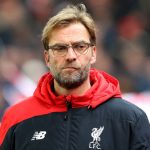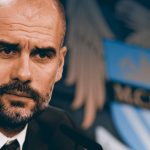Managers in the football world are usually good at sparking controversies in interviews and press-conferences, some more, some less so, but there aren’t many as skilled as Jose Mourinho when it comes to that side of things. His confidence, seen by many as overconfidence – bordering on arrogance, is often a real treat for media outlets which often carry his words in reports for a long time.
Nonetheless, to consider Mourinho anything other than a great manager would be as wrong as claiming the sun was shining brightly at midnight. His impressive record speaks for itself.
The Rapid Rise
His managerial journey started at Benfica in 2000 where he lasted only a year. Then he took over at Uniao de Leiria, before putting himself up on the map with Porto.
Though he only spent two years at the harbor city, his team won back-to-back Primeira Liga titles and topped it off with the Champions League trophy, which convinced the new (at the time) Chelsea owner Roman Abramovich that this was the man to lead his London project.
The Special One
Mourinho would go on to sit in the Stamford Bridge dugout for four years, winning two Premier League titles, two League Cups and one FA Cup.
He built his reputation there by instilling a strong defensive approach, and some of the players that went on to be considered Chelsea legends (John Terry, Frank Lampard, Didier Drogba) thrived under his tutorship.
Italy and Spain
In 2008, he left to join Inter Milan and soon made them the strongest team in Italy, but he didn’t stop there. He won back-to-back league titles topped with a Champions League triumph once more, but this time he added the Coppa Italia to complete the treble.
Over in Spain, Real Madrid were looking for an answer to the swift rise of Pep Guardiola’s Barcelona, and with his impressive record, they saw Mourinho as the man to put an end to the Catalans’ domination. However, that task seems to have been far more difficult than he would have expected. In three years at the Santiago Bernabeu, he managed “only” a single league title and one Copa Del Rey triumph, which clearly wasn’t considered good enough.
Return to England
In the years of his absence, Chelsea managed to win the 2012 Champions League and the 2013 Europa League, but that didn’t stop them from making an emotional swoop to bring back “the special one” to the club. And for two years it seemed like it had paid off. Following a season of readjustment, Mourinho added another Premier League trophy and another League Cup to his honors list, but then a shadow of the problem he had likely had at Real appeared again. The dressing room had turned against him after a series of underwhelming results. His falling out with some of the key players came to the full public view, and it inevitably led to another sacking.
Manchester United’s decision was a peculiar one. Having won 13 league titles under Sir Alex Ferguson, the Red Devils were (and perhaps still are) looking for someone to fill the shoes of the iconic Scotsman – something neither David Moyes nor Louis van Gaal turned out capable of doing. It left many of their supporters bewildered when they turned to Mourinho in 2016, but they soon got used to the image of the man they once hated sitting in the Old Trafford home dugout. In his first season there, he helped them win the League Cup and the Europa League – not exactly the trophies expected at United, but it seemed a good start. His name certainly helped them attract sought-after players at the time and the club had no problems with spending £89 million on Juventus midfielder Paul Pogba and £75 million on Everton striker Romelu Lukaku, with whom he had previously worked at Chelsea. But eventually, something about his personality seemed to have turned his stars against him once more as reports of a rift with Pogba broke out.
In the end, another series of poor results led to another sacking, and he hasn’t returned to management since.
What now?
The 56-year-old subsequently hosted a show on RT network called On the Touchline with Jose Mourinho in which he focused on the knockout stages of the 2018/19 Champions League, but he has revealed on more than one occasion that he feels ready to lead a team again. But which one?
It’s hard to tell at this point. Juventus have appointed Maurizio Sarri this summer, Chelsea have brought Frank Lampard back to the club (though a third stint at Stamford Bridge was always hard to imagine), Manchester United have done the same with the man who replaced Mourinho, Ole Gunnar Solskjaer. The likes of Manchester City, Liverpool, Tottenham Hotspur and Arsenal seem set with Pep Guardiola, Jurgen Klopp, Mauricio Pochettino and Unai Emery, respectively. Real have brought back Zinedine Zidane, Bayern Munich are set with Niko Kovač. Ernesto Valverde has survived at the Camp Nou for the time being despite Barcelona’s Champions League disaster, and it would also be difficult to envisage the Catalans going for a coach like Mourinho.
Paris Saint-Germain? Perhaps. The Ligue 1 champions have spent a lot of money on players in recent years, and yet, every manager so far, including Thomas Tuchel, has failed to win the trophy they crave – the Champions League. Should they lose patience with the former Borussia Dortmund boss, they might – like many before them – see Jose Mourinho as the right man for the job.
With PSG already the dominant force in French football, it would perhaps leave enough of his mind free to focus on the biggest trophy in European club football. The though must have occurred to him, but if that is something he would be willing to embark on, at the moment, patience is the key. He appears to have it though, with recent reports claiming he had rejected a vast sum of money to take his expertise to China.
Paddy Power have him as the favorite for the next PSG boss at 11/8. On the other hand, the odds are slightly longer on a return to Inter Milan at 9/2, while they’re absolutely massive at 40 on the Portuguese succeeding Valverde at Barcelona.
But let’s wait and see.
- Soccer News Like
- Be the first of your friends!




















